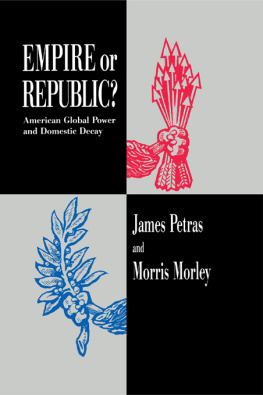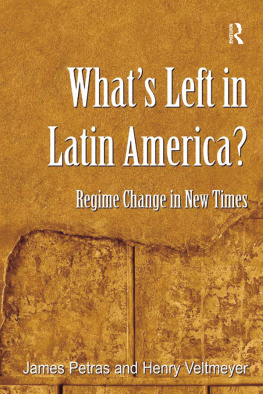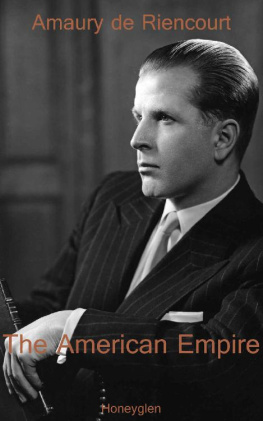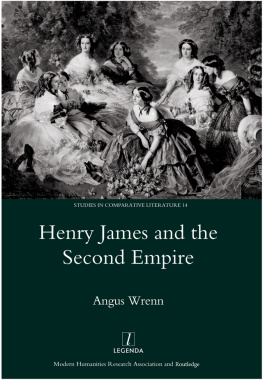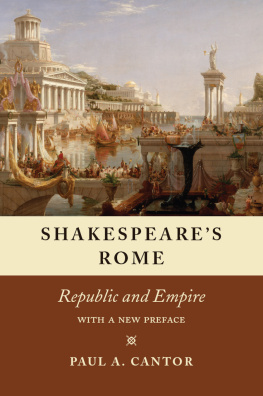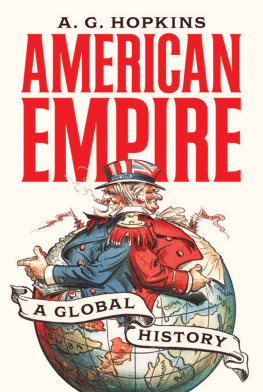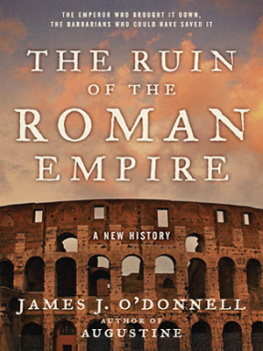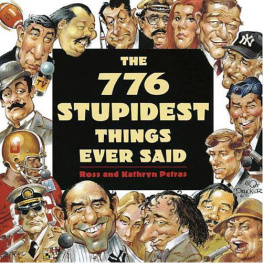Published in 1995 by
Routledge
270 Madison Ave,
New York NY 10016
Published in Great Britain by
Routledge
2 Park Square, Milton Park,
Abingdon, Oxon, OX14 4RN
Transferred to Digital Printing 2010
Copyright 1995 by Routledge
All rights reserved. No part of this book may be reprinted or reproduced or utilized in any form or by any electronic, mechanical or other means, now known or hereafter invented, including photocopying and recording, or in any information storage or retrieval system, without permission in writing from the publisher.
Library of Congress Cataloging-in-Publication Data
Petras, James F., 1937
Empire or republic? : American global power and domestic decay / by James Petras, Morris Morley.
p. cm.
Includes index.
ISBN 0-415-91064-1 (alk. paper) : ISBN 0-415-91065-X (pbk. : alk. paper)
1. United StatesPolitics and government1993 2. United StatesPolitics and government19811989. 3. United StatesPolitics and government19891993. 4. United StatesForeign relations1993 5. United StatesForeign relations19811989. 6. United StatesForeign relations19891993. I. Morley, Morris H. II. Title.
E885.P48 1994
327.73dc20
94-17398
CIP
Publishers Note
The publisher has gone to great lengths to ensure the quality of this reprint but points out that some imperfections in the original may be apparent.
[There is] an idea afoot that America is in decline and were in decline because we are engaged abroad. Over-extended, the prophets of decline call it. These are false prophets.
U.S. Secretary of State George Shultz, January 1989
Now that you are the only superpower, you think you can dictate policy to your allies and make them obey.
Senior aide to French President
Franois Mitterrand, May 1992
Others assert that domestic needs preclude an active foreign policy. But lets be clear. The alternative to American [global] leadership is not more security for our citizens but less.
President George Bush, December 1992
Rallying Americans to bear the costs and burdens of international engagement is no less important [than in the past]. But it is much more difficult [today]. For this reason, those who recognize the value of our leadership in the world should devote far more energy to making the case for sustained engagement abroad and less energy to debates over tactics.
U.S. National Security Council
Advisor Anthony Lake, September 1993
INTRODUCTION
In recent years, a wide-ranging debate has emerged about whether or not the United States is a declining world power. For some this is a myth, contradicted by the growth of American political, ideological, and military influence in the Third World, the collapse of the Soviet empire, continued successful military intervention abroad, and the resurgence of industrial, high-technology export sales. Others, most notably Paul Kennedy, have challenged this interpretation, citing the declining U.S. share of world trade, its growing indebtedness, spiralling budget and trade deficits, and lagging technological competitiveness.
This debate is inextricably linked to the question of what constitutes global hegemonic power in the specific context of the 1990s. According to Harvard political scientist Joseph Nye and former Reagan administration official Henry Nau, global power is largely defined by political leadership and strategic vision, a sense of national purpose, and the ability to hold sway in the world of ideas. They dispute the notion of Americas global economic slide and declining competitiveness since the 1970s as either a myth (Nau) or vastly exaggerated (Nye). They contend that the superiority and influence of the American system and American values will eventually transcend the setbacks brought on merely by individual policymakers mistakes, and the absence of ideas and national purpose at the top. The magic of the free market will arrest any
To Joseph Nye, the massive U.S.-led military buildup in late 1990 to confront Saddam Hussein testified to Americas global resurrection: the Gulf crisis show[ed] our strength. But does it make sense to apply the word strength to an exercise that initiated worldwide economic and financial dislocations? Moreover, the very fact that the White House was willing to project military power as a first resort is less an indication of strength than weakness. And would an America ascendant have needed to fly its emissaries around the world, hands outstretched, seeking donations to sustain this military display? Japan and (West) Germany nearly had to be bludgeoned to make acceptable contributions despite the fact that the former is six times and the latter three times more dependent on Middle East oil than the United States.
Years ago, when the U.S. government actively promoted its exporters and overseas investors in every corner of the globe (over and above its military adventures), free trade was the battle cry of an ascending empires multinational corporations. Today, major American industries from automobiles to machine tools to computers have lost crucial market shares to Japanese and European traders strongly backed by their respective states. And the exuberant cries of earlier times have been replaced by the complaints of a declining power muttering about unfair competition and lost domestic markets.
Historically, ascending global powers have always been the locomotives of the world economy; they have carried lesser nations with them to greater economic achievements. Ephemeral military flourishes, such as Operation Desert Shield/Desert Storm, are no sign of a countrys prowessno remedy for global or national economic decline. Military strength is an increasingly less relevant indicator of hegemony in the marketplace-dominated world of the late twentieth century. It cannot translate into resurgent economic power. Hence the paradox of U.S. overseas adventures and national decline, of military power and economic weakness. How can a state that depends on transfers and loans from its own competitors to balance its trade and cover its budget deficits be described as an ascending world power?
Writers who equate projections of will and voluntarism with global revival deceive themselves as to the conditions for being competitive and hegemonic in the 1990s. By failing to examine the economic underpinnings of global powerthe material foundations, structural orientation, and composition of capitalthese imperial revivalists miss the way in which U.S. global power is declining. External projections of power in the absence of inner economic strength is a recipe for eroding competitiveness.
Much of this debate, however, including the most complex and nuanced arguments, has revolved around the external position of the United States. What has been neglected are the domestic foundations of global power and, more importantly, the relationship between domestic development and the ability of the U.S. to sustain its power abroad. In the past, the assumption common to conservatives, liberals, and Marxists alike was that global hegemony was a critical accompaniment of national prosperity. Whether framed in the jargon of free-trade regimes or in the language of Lenins theory of imperialism, it was assumed that global power assured access to goods, markets, and a low-cost labor force that promoted prosperity at home.


